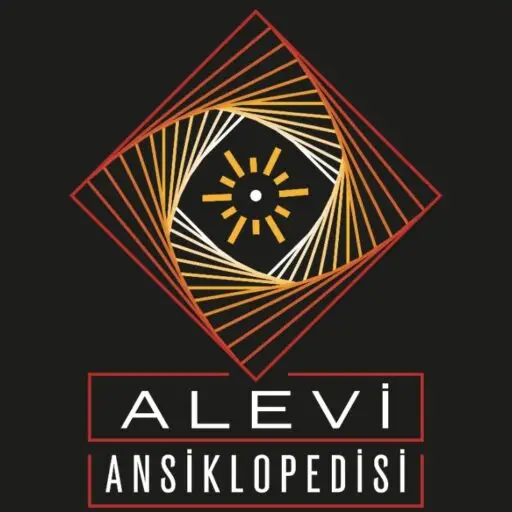Unclehood (Seyyidship in Arab Alevism)
* This entry was originally written in Turkish.
In Arab Alevi (Nusayri) communities, the institution of unclehood plays a central role in integrating 14-15 year old male children into the belief system. This traditional institution enables youth to learn esoteric teachings, acquire social identity, and transition to ‘Nusayri manhood’. A spiritual guide called the ‘religious uncle’ (dinden amca) is appointed regardless of biological kinship and teaches the young man secret prayers and mysteries. In Arab Alevism, knowledge is transmitted only to initiated males; women and those who marry outside the community are excluded from this process. The religious uncle serves as a second father figure for the initiate (talip/student) and is responsible for his moral, religious, and social development. This relationship begins with a ritualistic ceremony and culminates in the initiate becoming a full member of the community. However, marriage with the uncle’s daughter is forbidden, as this relationship is considered ‘spiritual siblinghood’. Violation of these rules leads to exclusion from the community. The process makes the protection of secrets obligatory.The Institution of Unclehood in Arab Alevism
The institution of unclehood is a traditional social and religious structure that plays a central role in the process of integrating young male individuals into the belief system of Arab Alevi (Nusayri) communities living in Turkey, Syria, and Lebanon. This institution assumes critical functions in an individual’s transition from childhood to adolescence, their learning of the community’s esoteric teachings, and their acceptance as a recognized male member within the community.
Historical and Theological Background
Arab Alevism is a belief system within the Shia interpretation of Islam, based on esoteric (batinī) teachings. In this tradition, sacred knowledge and secrets are transmitted only to initiated male individuals. The idea that esoteric knowledge should not be accessible to women or those who do not come from Arab Alevi parents (in some regions, only those whose father is not Arab Alevi) and must be transmitted through specific ritual processes forms the foundational basis that makes the institution of unclehood functional. In this system, a man referred to as the “religious uncle” prepares the youth for initiation and imparts to him the community’s secret teachings.
Definition and Function of the Institution of Unclehood
The institution of unclehood refers to the assignment of a spiritual relative to a male child around the ages of 14-15, independent of biological ties. This person is called the “religious uncle” and becomes the primary guide in the child’s religious, moral, and social development. Typically, the religious uncle is someone whom the parents, with the young male’s approval, deem suitable.
One of the main duties of the religious uncle is to transmit esoteric knowledge. The young individual, referred to as the “seeker” (talmīdh/student), learns the Nusayri secrets and prayers for the first time under the supervision of the religious uncle. This process usually occurs through special rituals, with secrets being revealed gradually. Additionally, the religious uncle and his wife become a second family for the seeker. The child is obliged to show them the same respect and affection as they would their own parents. Moreover, the religious uncle serves as a role model not only in matters of faith but also in behavioral and social issues. How the seeker behaves in society and remains faithful to the belief system is shaped under his guidance.
However, the relationships involved in the institution of unclehood are regulated by various social rules. For example, marriage between the religious uncle’s daughter and the seeker is prohibited because this relationship is considered to fall under “spiritual brotherhood.” If this prohibition is violated, both the seeker and the religious uncle may face exclusion from the community; they may be declared “fallen” (düşkün). In fact, primary texts indicate that this relationship is not forbidden, but social acceptance appears to have shifted over time. After initiation, the seeker is expected never to disclose the esoteric knowledge they have learned under any circumstances. Otherwise, severe social sanctions may be imposed on both the religious uncle and the seeker. The unclehood relationship is not merely an individual educational process but also possesses a ritualistic structure. This process signifies the young man’s acceptance into “Nusayri manhood.” The seeker becomes a full member of the community and gains the right to participate in collective rituals such as prayer, sacrifice, and festivals.
ConclusionThe institution of unclehood holds a central social and religious role in Arab-Alawi (Nusayri) communities by enabling the integration of young males into the belief system. The foundational principle that esoteric knowledge is to be transmitted only to initiated male individuals through specific ritual processes makes this institution functional. The figure of the religious uncle, independent of biological ties, assumes the role of a guide in the spiritual and moral development of the talib (initiate). This relationship is not limited to the transmission of knowledge but also shapes social roles and behavioral norms. Reinforced by rules such as marriage prohibitions and the obligation to maintain secrecy, this structure defines the individual’s place within the community. Thus, the institution of unclehood offers a ritualistic framework that unites individual initiation with communal belonging and sustains the acceptance and continuity of Arab-Alawi manhood.
Aslan, Cahit. 2018. “Nusayriler’de ‘Amcalık’ Kurumu ve İşlevleri.” Antakiyat: Journal of Social and Theological Studies 1 (2): 202-
Erdem, Muharrem. 2010. Secrets and Revelations: An Ethnographic Study of the Nusayr community in the Karaduvar District of Mersin. Master Thesis. Middle East Technical University.
Tendler, Bella. 2012. Concealment and revelation: A study of secrecy and initiation among the Nusayri-‘Alawis of Syria. PhD Thesis. Princton University.
Türk, Hüseyin. 2018. “The Unclehood Tradition in the Nusayriye as a Religious Institution: Ritualization of Identity and Esoteric Knowledge.” Karadeniz International Journal of Religious Studies 31: 13-20. Erişim: DergiPark.

